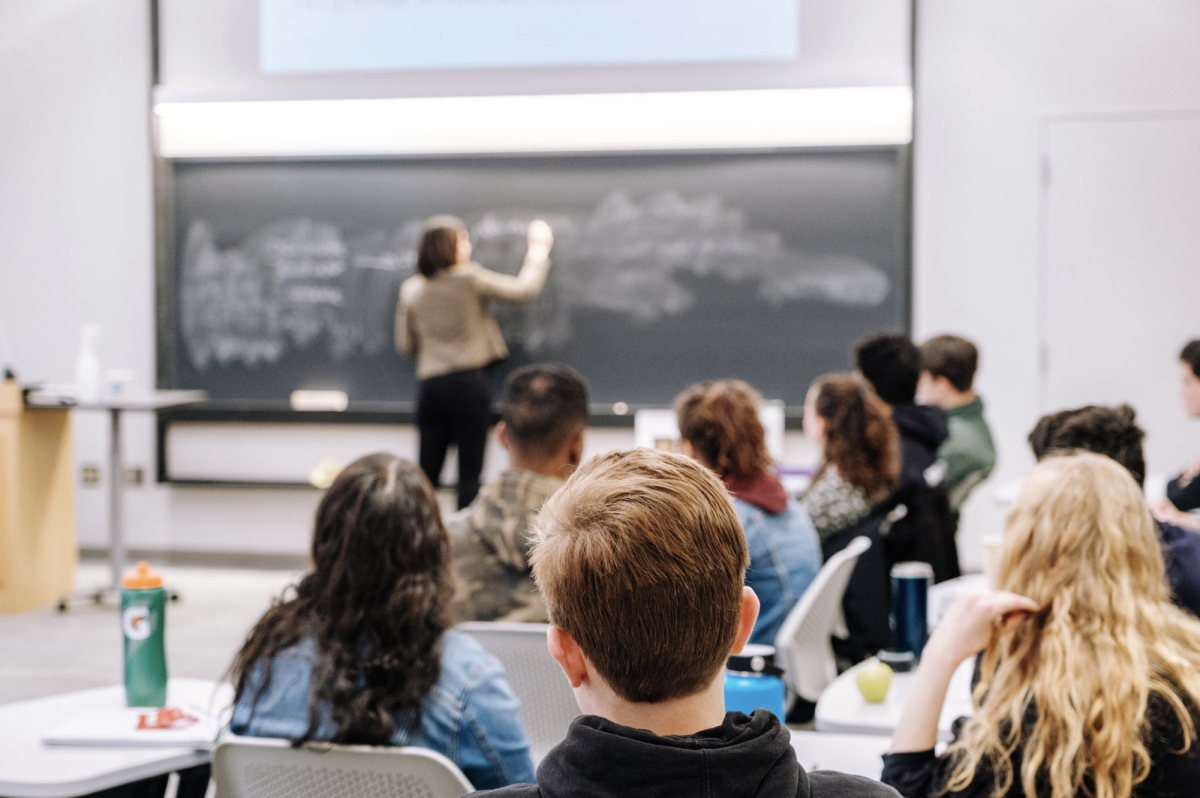
Steven Garcia
As artificial intelligence (AI) and education become increasingly intertwined in conversation, St. Olaf faculty and staff are opening campus conversations about AI use, offering student employee training and courses in an effort to explore its practical applications.
Assistant Director for Academic Support for Supplemental Instruction and Tutoring Mary Doroff and Assistant Director for Academic Support for SOAR, Tutoring, and Student Success Tara Hupton decided to write AI trainings for student employees in the Academic Success Center (ASC) for this academic year.
“We want them to have the best practice [and] professional development possible,” Doroff said in an interview with The Olaf Messenger. “Being the largest employer on campus, we really are dedicated to our student employees to come out of working in our office with the skill set they need for the workforce.”
Doroff stated that through personal AI research, they have learned that employers are going to be looking for recent graduates with AI knowledge, which is why they are opening up the discussions in the ASC offices.
“[The training covers] your professional life as a student employee and the ethical ways to use [AI] within tutoring or SI,” Hupton said in an interview with The Olaf Messenger.
Throughout Doroff’s 25 years of teaching, she has seen schools move from one computer lab to laptop carts to Google Classroom.
“Now fast forward to bringing AI into education; it’s the next stepping stone in the technological revolution,” Doroff said. “If you don’t grasp on to that next advancement, you do risk being left behind.”
This reason, among many others, is why St. Olaf is opening the discussion regarding AI usage on campus. However, according to Doroff, views on AI are widespread on the Hill.
“Students, staff, and faculty are all over the place with how they view it [AI] and what they are willing and wanting to do and experiment [with],” Doroff said. “Just respecting all [opinions] I think is important right now.”
Assistant Professor of English Elisabeth Alderks is teaching a First Year Writing and Rhetoric course on AI titled AI in Culture and Discourse. The course will cover a variety of topics related to AI such as ways to use AI appropriately as well as student concerns and opinions on the new technology.
“I want to delve into this AI course because it’s not a conversation I see on campus. It’s a conversation that I think we need to be having,” Alderks said.
Kenneth Bjork Distinguished Professor of Sociology and Anthropology Thomas Williamson is also teaching a First Year Seminar course called Life with AI. In comparison to Alderk’s class, Williamson’s course will engage in critical discussions surrounding the technology.
“We’re not going to spend a lot of our class time using AI. We’ll do some, but the bigger thing is to explore these ideas behind it,” Williamson said in an interview with The Olaf Messenger.
Williamson and Alderks’ courses have access to BoodleBox, an AI integration program providing over 40 AI tools such as GPT and Claude in one platform.
“St. Olaf has a certain number of licenses for that [BoodleBox], and our class is experimenting with this and just seeing what it is like to have access to 42 different large language models,” Williamson continued.
Faculties among academic communities are learning to work with AI to varying degrees, but it is difficult with the fast-paced technological environment.
“Once you come up with an AI policy, AI is going to change. What you have decided is no longer going to be relevant,” Alderks said. “I don’t want my head to be in the sand and not engage with these questions. That doesn’t mean that we have to have a wholehearted embrace of AI technologies. We can still choose not to use them in our own work, but we have to talk about them.”
AI, however, will not be affecting the student and faculty relationships.
“So much of SOAR is relational, which AI cannot replace that piece of it. That’s the piece of it that it’s lacking, that human connection piece, which is so valuable for SOAR Leaders,” Hupton said. “The big thing is not using it as a replacement for anything. Using it as a partner, collaborator, thought partner.”
Faculty encourage students and themselves to be mindful of AI usage, and grow in their technological understanding.
“I think just continuing to learn and get better and grow campus wide,” Doroff said in response to a question of seeing where St. Olaf stands with the future of AI. “Quite honestly, we are learning as we go, we’re learning a lot too.”